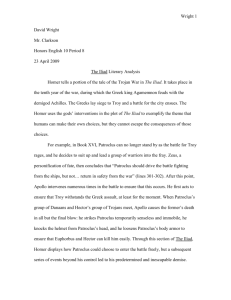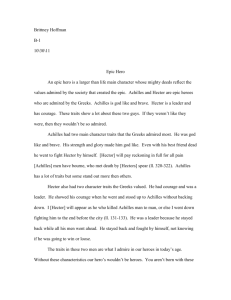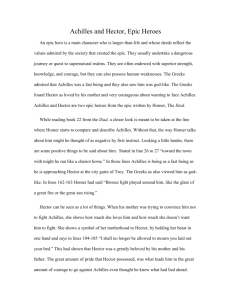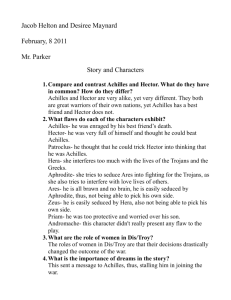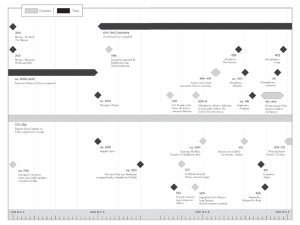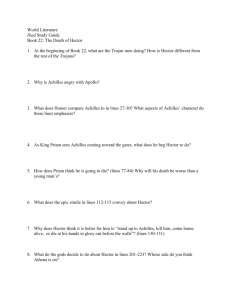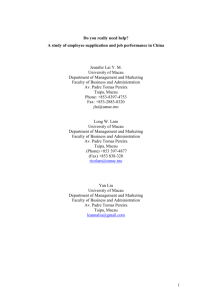Outline of Battlefield Supplication in Iliad
advertisement
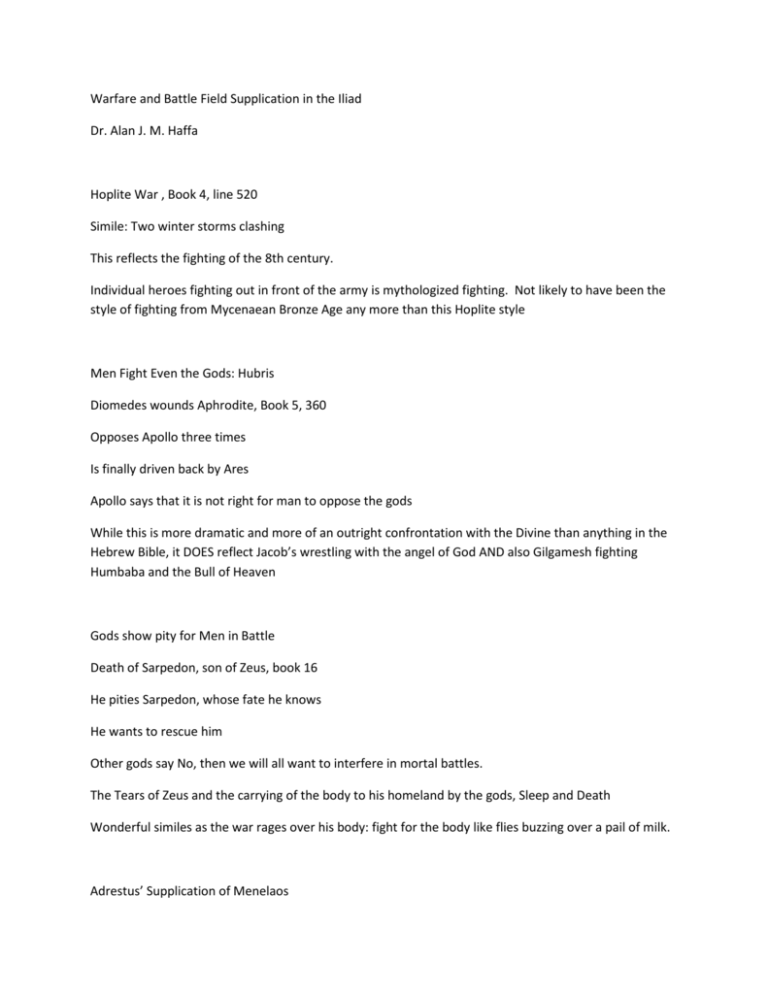
Warfare and Battle Field Supplication in the Iliad Dr. Alan J. M. Haffa Hoplite War , Book 4, line 520 Simile: Two winter storms clashing This reflects the fighting of the 8th century. Individual heroes fighting out in front of the army is mythologized fighting. Not likely to have been the style of fighting from Mycenaean Bronze Age any more than this Hoplite style Men Fight Even the Gods: Hubris Diomedes wounds Aphrodite, Book 5, 360 Opposes Apollo three times Is finally driven back by Ares Apollo says that it is not right for man to oppose the gods While this is more dramatic and more of an outright confrontation with the Divine than anything in the Hebrew Bible, it DOES reflect Jacob’s wrestling with the angel of God AND also Gilgamesh fighting Humbaba and the Bull of Heaven Gods show pity for Men in Battle Death of Sarpedon, son of Zeus, book 16 He pities Sarpedon, whose fate he knows He wants to rescue him Other gods say No, then we will all want to interfere in mortal battles. The Tears of Zeus and the carrying of the body to his homeland by the gods, Sleep and Death Wonderful similes as the war rages over his body: fight for the body like flies buzzing over a pail of milk. Adrestus’ Supplication of Menelaos A minor Trojan supplicates Menelaos, Book 6, 60 ff. Menelaos is ready to accept Menelaos shoves him to the ground, and Agamemnon stabs him through with his spear. This makes Agamemnon look really bad, as the proper thing to do was enslave and ransom him. Doloneia: Book 10 Inserted Later? Dramatic Return to Action after Embassy . Cunning of Odysseus Supplication Denied Odysseus, Diomedes & Dolon Death of Patroclus at hands of Hector Concentration of Similes prior to battle signifies the significance of the combat: 16.880 ff Hector, with the help of Apollo, kills Patroclus in combat. Great simile: like a lion in the mountains who “with sheer brute force” beats down a boar, “so now with a close thrust Hector the son of Priam tore the life from the fighting son of Moetius, from Patroclus who had killed so many men in war…” Hector taunts the dead Patroclus and Achilles Lycaon’s Supplication of Achilles Previously captured and ransomed by Achilles Home only 12 days when captured again Alludes to the value he brought as a captive—100 Bulls His other brother, Polydorus, has been killed by Achilles Pity his mother He is only half brother to Hector; his mother is not the same. Achiles is merciless in the desecration of Lycaon’s body Hector’s Supplication of Achilles Dies, deceived by Athena, who assumed the form of his friend Deiphobus, but disappeared when Achilles attacked Hector Hector wears Achilles’ armor, stripped from Patroclus’s body Hector does not beg for life; He appeals for burial, 22.400 ff “beg no more, you fawning dog, begging me by my parents! Would go god my rage, my fury would drive me now to hack your flesh away and eat you raw Desecration of Body and the Gods The body is desecrated: stabbing, drug behind chariots, God’s preserve it with ambrosia God’s call a council and decide that Achilles has gone too far Summary and Observations Humans and Gods live in the same world—a world of conflict and pain While Gods and Men are fundamentally different, because they are immortal and we are mortal, still the God’s suffer through their connection to mortals The distance between Gods and Men can be bridged Supplication was revered by Gods and ordained by Society—with ransom and enslavement the customary treatment of the defeated Yet, battle could be brutal and once the ‘rules of engagement’ were breached, custom could be broken and war become yet more brutal In the end the Gods, for all their faults, seek to restore some sense of honorable behavior in battle as they seek to protect the body of Hector
